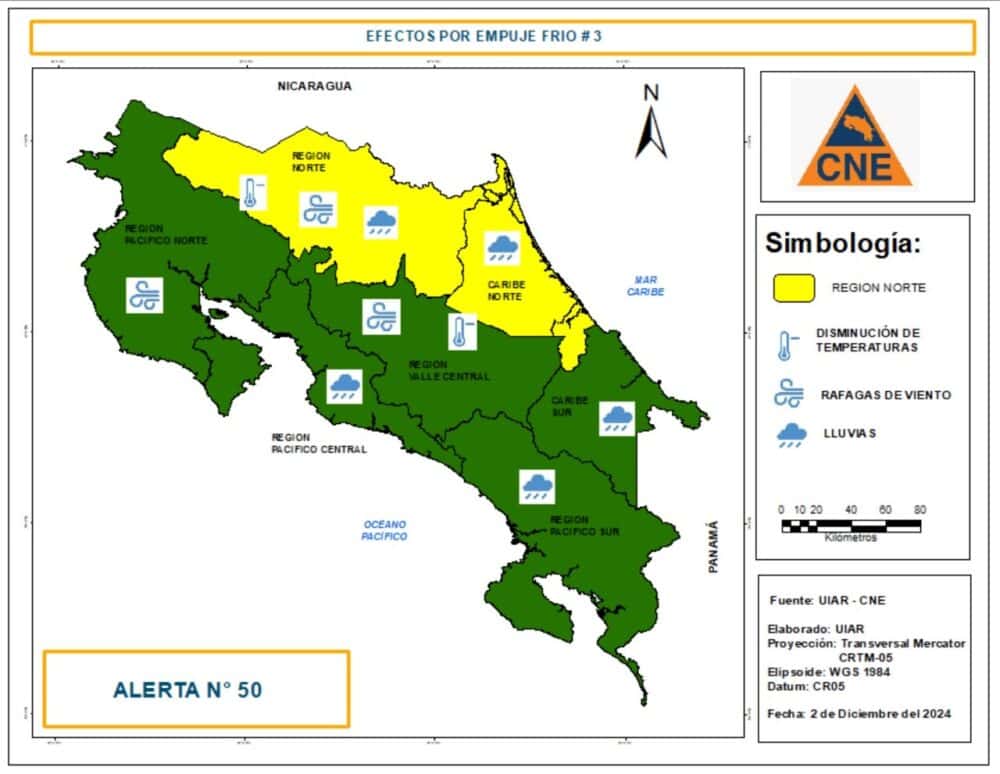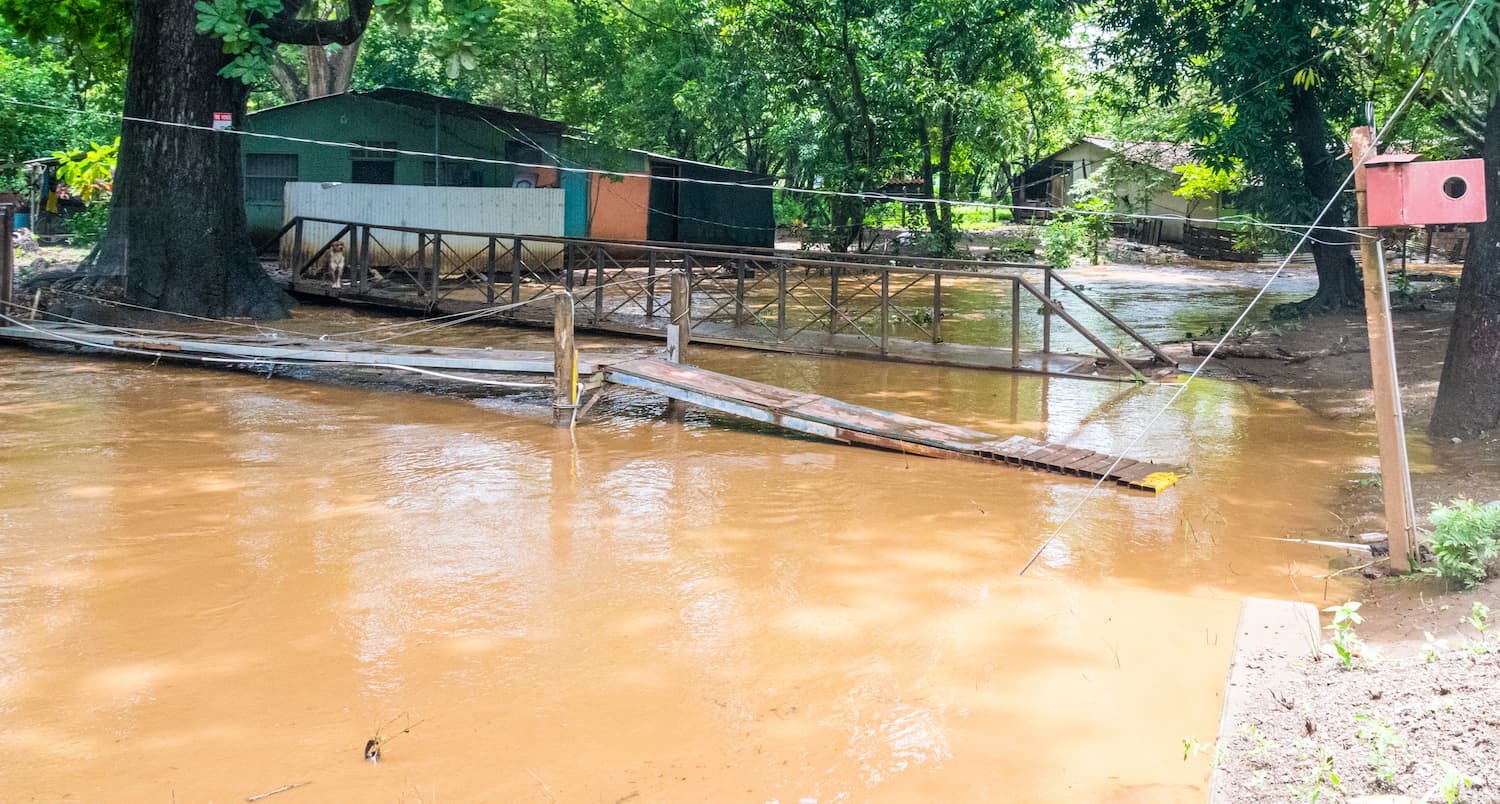Costa Rica continues to grapple with severe flooding as Cold Front No. 3 maintains its grip on the country. The National Meteorological Institute (IMN) reports that a high-pressure system is intensifying trade winds across Central America and the Caribbean, exacerbating the already challenging weather conditions.
As of Tuesday, the National Emergency Commission (CNE) has recorded 35 flooding emergencies across the nation. CNE President Alejandro Picado stated that Siquirres has been particularly hard hit, with the Reventazón River and other streams overflowing, causing widespread flooding of homes and roads.
The Northern Zone, especially Sarapiquí, has also experienced significant flooding. Communities such as Cureña, Cureñita, Los Remolinitos, and San Antonio have been affected by overflowing rivers. In response, authorities have opened a shelter to accommodate 70 people.

The Costa Rican Red Cross reported the evacuation of 42 individuals to the Agape Church shelter, including 19 children, 20 adults, and 3 older adults. In Matina, authorities are investigating reports of a landslide affecting a house. Wind gusts of up to 100 km/h have been recorded near the Guanacaste mountain range and up to 70 km/h in higher elevations of the Central Valley.
The CNE has elevated the alert level from green to yellow for the Northern Zone and the Caribbean, while the rest of the country remains under a green alert. The IMN has issued warnings for mountainous areas of the Caribbean, Northern Zone, and South Pacific, where river basins are 85% to 95% saturated, making them highly susceptible to incidents.
Meteorologists predict that Tuesday and Wednesday will see the heaviest rainfall in the Caribbean and Northern regions. However, from Thursday onwards, a decrease in wind gusts and more stable atmospheric conditions are expected due to the arrival of dry air.
Authorities urge residents to exercise caution, particularly in flood-prone areas and near rivers and streams with increased flow. The public is advised to stay informed about further developments and follow official recommendations for safety.






